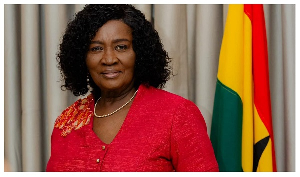General News of Tuesday, 13 November 2018
Source: ghanatalksbusiness.com
Ghana needs GH¢3.3 billion to fund Free SHS fully – Prof Aryeetey
Professor Ernest Aryeetey, former Chancellor of University of Ghana has advanced that it will cost Ghana GH¢ 3.3 billion to fund the Free SHS Policy in the next academic year.
According to the Economist, the amount, which is exclusive of salaries for staff, is almost thrice the GHS1.3 billion of what was budgeted for the Free SHS in the 2018 budget.
Speaking at a Graphic Business/Stanbic Breakfast today November 12, 2018, on the theme; “Financing Free Quality Education in Ghana – Sustainable Funding Options” the former Vice-Chancellor said the strong growth in the cost of the Free SHS would be influenced by its maturity from the current two streams to three streams.
He said the cost estimate was based on data obtained from the running of SHSs nationwide.
He also added that, in the event where the status quo remains, the cost of Free SHS could be pegged at GH¢5 billion per annum in the coming years.
Financing Free Quality Education in Ghana
Prof. Ernest Aryeetey recommended that in order to finance free quality education in Ghana;
It should be possible to categories schools, depending on their endowments and conditions and set eligibility criteria
Exempt schools that not eligible from “Free” status
A targeted approach needs to be applied to enable parents who are not poor to make substantial financial contributions in non-free schools.
Provide scholarships to eligible students in non-free schools
He added that the state trying to do it alone will be problematic as it draws resources from away from other essential investment required for structural transformation.
How to Build Wealth Out of Free SHS
Since the commencement of the rollout government`s free Senior High School (SHS) policy in September 2017 at the start of the 2017/2018 academic year, several thousands of Junior High School leavers have been beneficiaries.
Records show that a much higher number of students will benefit from this policy in this academic year.
Under this policy, beneficiaries are not required to pay admission fees, utility fees, science centre fees, computer lab fees, examination fees and library fees and it covers technical, agricultural and vocational institutions at the secondary school level.
The stark reality, however, is that for some parents, the funds that would have hitherto been expended in the payment of schools fees are quickly diverted into other mundane activities including the purchase of consumables, luxurious items, profligate funeral expenditures and generally living large.
Entertainment











